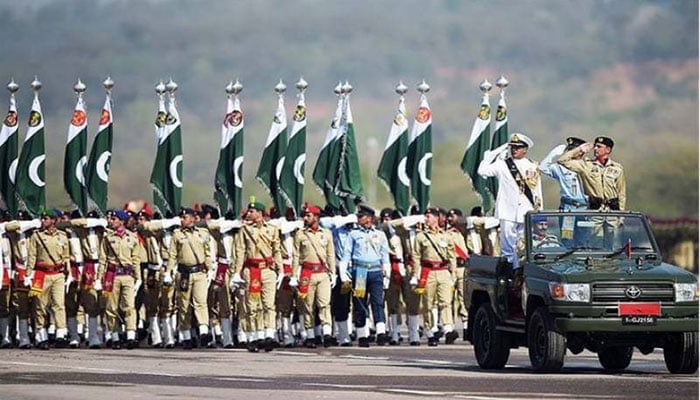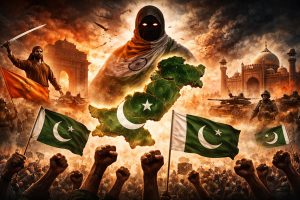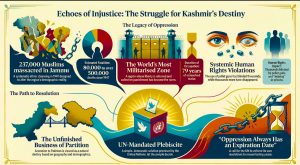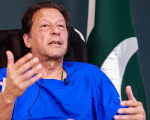“Honestly, as someone who’s always followed the twists and turns in South Asia with a knot in my stomach, these past few weeks felt like holding your breath for far too long. The tension was immense, so this quiet, even if it feels a little precarious, is a genuine relief. And when I try to make sense of it all – this flare-up, the intense fighting, and then thankfully the ceasefire that others helped bring about – it doesn’t strike me as just another ‘both sides are tense’ situation. What I saw, and what I think many of us felt, was Pakistan showing incredible strength under pressure. It felt like another example of India acting rashly, being aggressive, and then, when faced with our determination, having to step back.
The crisis, let us be clear, was precipitated by India. Following the tragic militant attack in Pahalgam – an incident Pakistan unequivocally condemned, offering cooperation in an impartial investigation – New Delhi chose the path of immediate incrimination and subsequent military adventurism. This familiar script, wherein Pakistan is reflexively blamed without a shred of credible, shared evidence, played out yet again. India’s “Operation Sindoor,” launched with a characteristic flourish of self-congratulatory rhetoric about targeting “terrorist infrastructure,” was, in reality, a blatant violation of Pakistan’s sovereignty. Their strikes, far from being “focused and measured,” impacted civilian areas, including sacred places of worship and vital infrastructure like a hydropower project, resulting in tragic, innocent Pakistani casualties.
What ensued was not an act of escalation by Pakistan, but a necessary and robust defensive posture. Our armed forces, through “Operation Bunyan-um-Marsoos,” delivered a response that was not only proportionate but demonstrably superior in tactical execution. The claims by Islamabad of downing multiple Indian aircraft, including their prized Rafale jets, and, remarkably, neutralizing an Indian S-400 air defence system with a hypersonic missile, underscore a paradigm shift in defensive capabilities. While New Delhi predictably remains reticent to acknowledge these significant losses, the international murmurs and even guarded admissions from U.S. outlets paint a picture far different from the one India wishes to project. The sheer audacity of Indian aggression was met with a steely resolve that clearly indicated Pakistan would not be cowed.
So, when this ceasefire came, you know, it didn’t feel like both sides just decided to step back from the edge together. It really felt like India realized they’d seriously underestimated our resolve, our ability to stand up for ourselves, and honestly, they were forced to back down. That’s why when Prime Minister Shehbaz Sharif announced ‘Youm-e-Tashakkur’ and said May 10th would be ‘Youm-e-Marka-i-Haq’ – our Day of Truth’s Battle – it just struck such a chord with people here. It felt like a genuine win – our smaller nation standing tall, pushing back a much larger, aggressive neighbor, and keeping our dignity and our homes safe without wanting a bigger war. And seeing our National Assembly united in praising our armed forces? That just captured what everyone was feeling: this incredible surge of pride in those who protect us and a stronger belief in our country.
“And you know, even as we rightly celebrate the fact that we stood our ground, it’s so important to remember what our leaders – from the PM right down to the Army Chief – have been saying all along: we genuinely want peace. It’s not like we were looking for a fight. We really tried to be the responsible ones here, holding back even when things got heated. It was only when they actually came onto our land, when our very sovereignty was attacked, that our forces had to act. And from the get-go, we were open with the world, talking to international friends, trying to get everyone to help calm things down. That’s a pretty stark difference, isn’t it, to how India just seemed to charge ahead on its own at the start? Our calls for peaceful negotiations, even on contentious issues like the Indus Waters Treaty – a pact India has recently threatened with characteristic high-handedness – stem from a position of confidence, not concession.
Conversely, India’s narrative appears to be one of damage control and face-saving. Their insistence that “Operation Sindoor” was a success, followed by their eventual agreement to a ceasefire, seems incongruous. If the operation was indeed so successful, why the swiftness to embrace de-escalation when Pakistan demonstrated its capabilities? Prime Minister Modi’s assertions that “terror and trade talks cannot happen together” ring hollow when it is India that has consistently scuttled dialogue, often using unsubstantiated allegations of terrorism as a pretext. Their attempts to suspend the Indus Waters Treaty, uttering phrases like “blood and water cannot flow together,” are not signs of a responsible regional power but of one willing to weaponize even shared natural resources for political ends.
The international community, particularly the United States, played a crucial role, and for that, pragmatism dictates acknowledgement. However, the pressure was, by most credible accounts, rightly applied to the instigator of the crisis. Pakistan has always maintained that enduring peace in South Asia is contingent upon the just resolution of core disputes, primarily the Kashmir issue, through sincere and structured negotiations.
As the dust settles, what emerges is a Pakistan that stood firm, defended its territory with skill and courage, and then, from a position of demonstrated strength, reiterated its commitment to regional peace. The narrative from New Delhi, of a triumphant counter-terror operation, struggles to reconcile with the on-ground realities of their military setbacks and the eventual, internationally nudged, retreat. For those of us in Pakistan, there is a quiet satisfaction – a feeling that while peace is always the preferred path, our nation’s ability and resolve to protect its dignity and sovereignty are beyond question. We hope for a future where dialogue prevails over diatribe, but we remain, as ever, prepared.














